Subscribe to the Newsletter
If you are interested in understanding how Traditional Chinese Medicine can improve your life sign up to my newsletter for the latest updates.
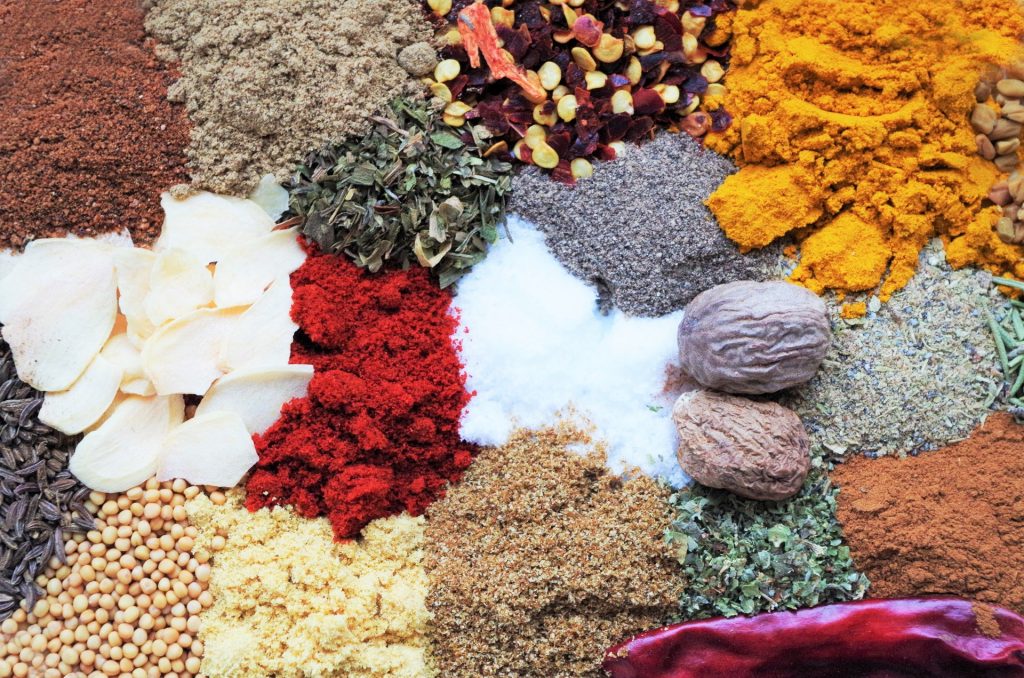
Key Learning Points
If you go far enough back, they classified foods in terms of what we would call their shamanistic traditions: a bit like how Western Astrology nowadays puts Iron under Mars and Copper under Venus. They knew what their equivalents of Mars and Venus were: classifying foods this way was natural to them.
As time went by, these shamanistic beliefs were re-classified into observations of what happened to the body in terms of sensation.
For example, if you’ve ever had brandy you’ll agree that it has a heating effect. This is more marked than the heating effect of red wine, which in turn is more heating than white wine. Indeed, most people think of white wine as being cooling, but that’s because you drink it chilled or diluted with water, which is cooling.
(In fact, some people believe white wine is non-alcoholic, a good way to cut down on their consumption!)
Anyway, brandy heats you up fast. The same goes for Armagnac, which I prefer.
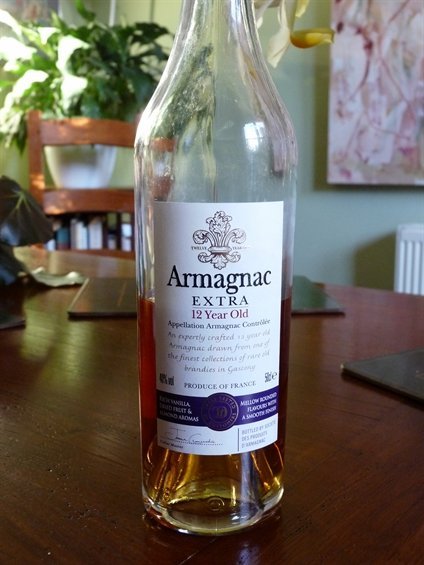
What about good Scots porridge made from oats? This is usually taken warm in Scotland in winter. It keeps you warm for hours as its energy is slowly released. But it’s less heating than brandy.
Ginger isn’t usually taken other than as a flavouring in the West, but if you drink ginger root tea, it has quite a strong warming effect. Unless taken very strong, it won’t make you sweat, but with its warming effect, it’s good in dishes if your digestion is a little weak. (Dried powdered ginger has a different effect to raw root ginger, but let’s not get too complicated here!)
Lastly think of melon. Melon is juicy and we eat it in summer. It has a cooling effect. Even if you grilled it first it would still be juicy and cooling. (Unless you grilled it to a cinder.)
Take brandy, leave it in the fridge, then drink it: it would still be warming although perhaps slightly less warming than if taken at room temperature.
The Chinese way of nutrition uses food to keep you and your energy balanced between yin and yang, hot and cold, dry and moist, energising and steadying, stimulating and calming.
So they would suggest that in cold weather, or if you tend to be cold, eat warming foods. In hot weather or if you are typically inclined to suffer from hot diseases, take cooling foods and drinks.
That’s what’s meant by its energetic effect.
It’s basic common sense.
For more, click either Warming/Heating foods, or Cooling/Cold foods.
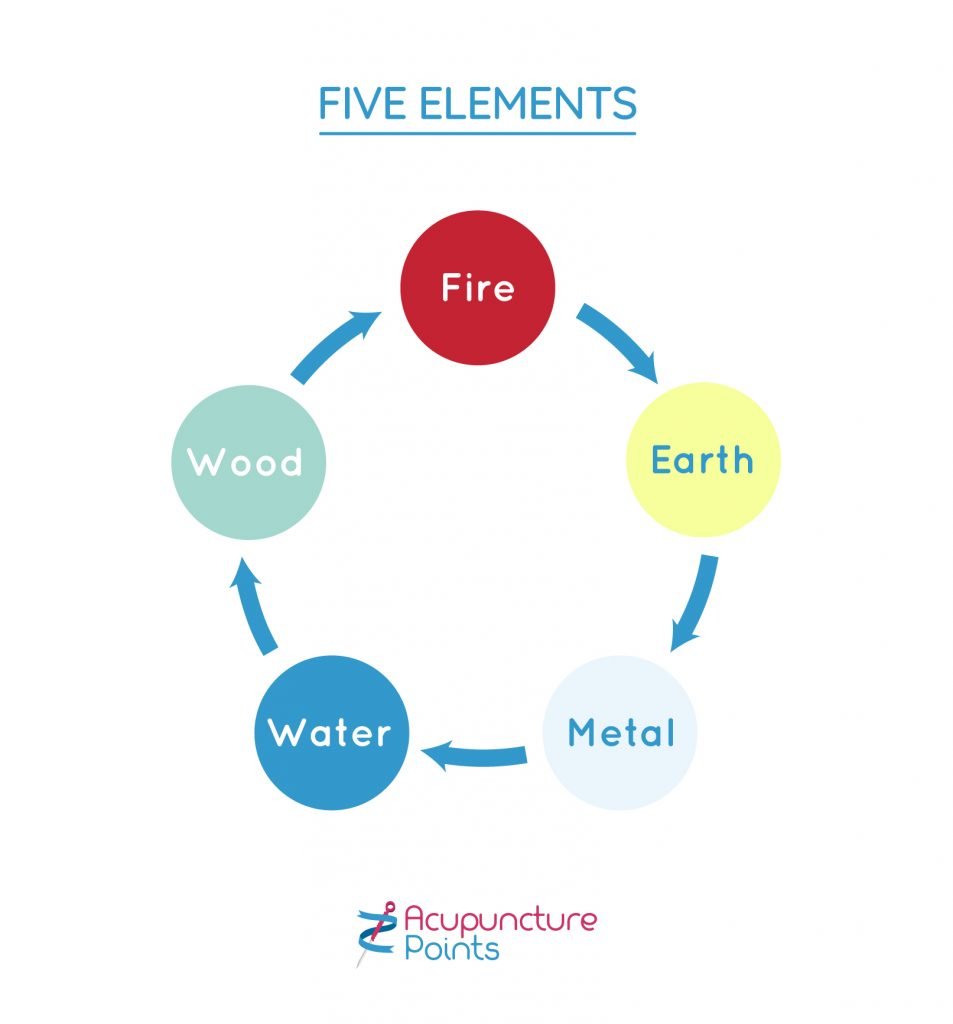
However, there is another way of looking at food, which comes from the Five Elements school of thought in Chinese medicine.
With this, foods were classified into five categories and the 5 Element theory says that if you eat foods from each category regularly, you’ll stay healthy. (Actually, there’s also a sixth classification – neutral.)
Conversely, if you eat food from only one category all the time, you won’t stay healthy: you’ll eventually get ill.
Bitter foods, include almonds and some kinds of cabbage, coffee and chocolate. They help to control the Fire quality in your body, and help balance your Heart energy. Too much, or too little, and your Heart energy may suffer. Read more about foods classified as having a Bitter Taste.
Sweet foods, including most grains and baked vegetables but also various kinds of meat, feed the Spleen energy. Sweet food taken as straight sugar, ie too refined and too sweet, damages the Spleen. Click to read more about the Sweet taste and its foods.
Pungent foods are spicy and go with the Lungs energy. A little clears your nose. Too much and you may find your lungs get a little blocked with phlegm and you need to cough to clear it. Click to read more about the pungent, spicy taste and its foods.
Salty foods include a range of foods besides salt itself: Kidney energy. Click to read more about the salty taste and its foods.
Sour foods include lemons and vinegar: they feed your Liver energy. So do Fermented foods, which produce a natural sourness. Click to read more about the sour taste and its foods.
Gradually there was a movement away from classifying foods according to their shamanistic ‘superstitions’, to classifying them according to the sensations and actions they produced in the body.
These actions by foods take effect over time. For example, you have to eat nothing but roast chicken for quite a while to produce its effect, unless you are a very susceptible or sensitive individual. Herbs, which are rather like concentrated foods, but contain very little nutrition, work faster. Medicines – as prescribed by your doctor – are like concentrated herbs, and work even faster. (Many medicines use the concentrated and purified essence of the herb.)
However, practitioners of Chinese medicine would say that such medicines are potentially dangerous because given on their own, without the other qualities in the original herbs from which they were made, or the addition of other herbs to modify their action, means they may act too fast, allowing no time to stop them or change course should the medicine produce the wrong result.
Whereas herbs are usually given as part of a formula in Chinese medicine, the other herbs making the main herb safer and often allowing it to work faster and accomplish more than it would on its own.
By ‘direction’, they encourage your body to send qi down, up, inwards and outwards. For example, some foods have a descending action: they encourage bowel movements! These include many root vegetables, together with bitter greens like chicory and dandelion leaves.
Western nutrition considers that the nutrition in any food ‘goes’ to every organ in the body. Chinese medicine says that most foods have a particular affinity with certain zangfu organs. For example, taking nuts: almonds with Metal; Brazil nuts with Wood; Hazel/Filbert nuts with Earth.
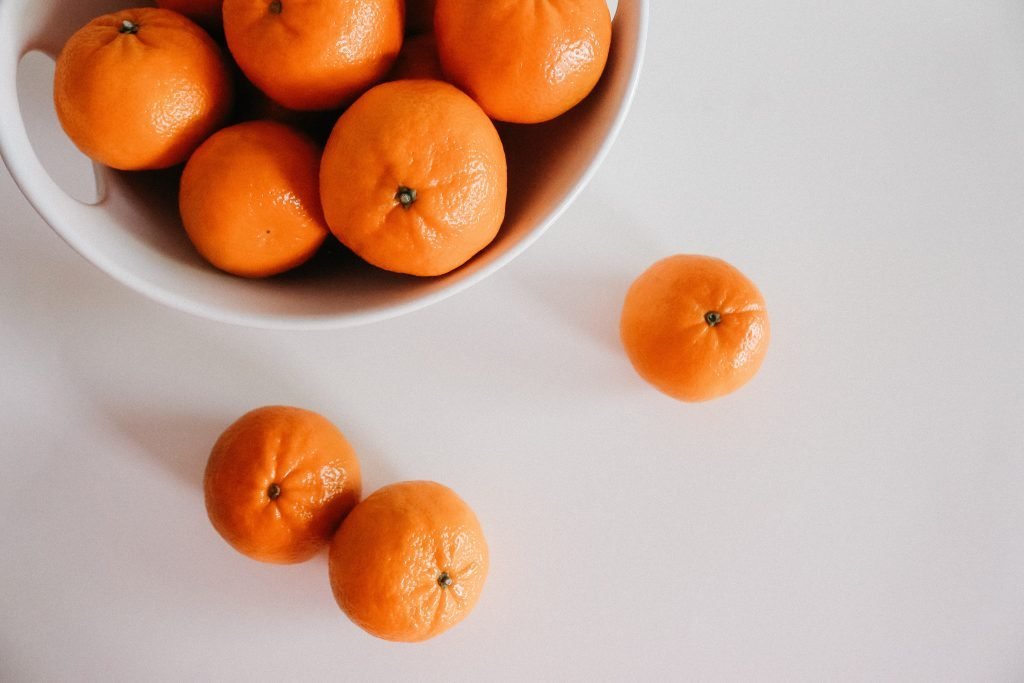
| I once had a patient whose migraine stopped, so he said, after having from me just one acupuncture treatment.
He told all his friends. They rang me for consultations.
Then his headaches returned.
The next acupuncture treatment was equally successful.
Two days later the migraine returned.
So it went on for some weeks until he and his wife invited me for dinner.
At that point his friends were still ringing me.
He told me he drank at least one carton daily. On the outside it said each carton contained the juice of 27 oranges: he was very confident he got enough vitamin C nutrition.
I asked him how often he had ever, in his life, eaten 27 oranges in a day. Then I pointed out that oranges often have a heating effect in terms of Chinese medicine: that his migraines were diagnosed as a form of excess yang, which could well be exacerbated by eating the equivalent of 27 oranges daily.
He never had another migraine.
His friends stopped ringing me.
He still eats the occasional orange.
He moved to live about as far away from me as it is possible to go. |
You would notice these effects only if you ate a lot of the food in question for a long time, or if you were ill and took plenty of the food. For example, a food is heating or cooling, moistening or drying. A food may be tonifying or regulating or help to transform damp.
Technical stuff. Some foods are better at building one of the essential building blocks in Chinese medicine – Blood. Others are better for Qi. Blood is Yin, Qi is Yang, and balancing yin and yang takes skill or, if you’re the cook, experience.
So, as the cook, you can use food to keep your family healthy and get rid of disease. If your family is healthy, there’s a good chance you’re cooking and giving them the right food.
But if you eat a small selection of foods from only one or a few classifications frequently you may, imperceptibly, begin to acquire features of the action of the food – as in the above example of the man who got migraines from eating oranges.
In his case, he was OK eating the occasional orange or drinking the occasional glass of orange juice. But not when he drank the equivalent of 27 oranges daily.
In terms of nutrition he was eating well. In terms of food he was eating well. But in terms of the energetic function of his nutrition he was eating a very lop-sided diet.
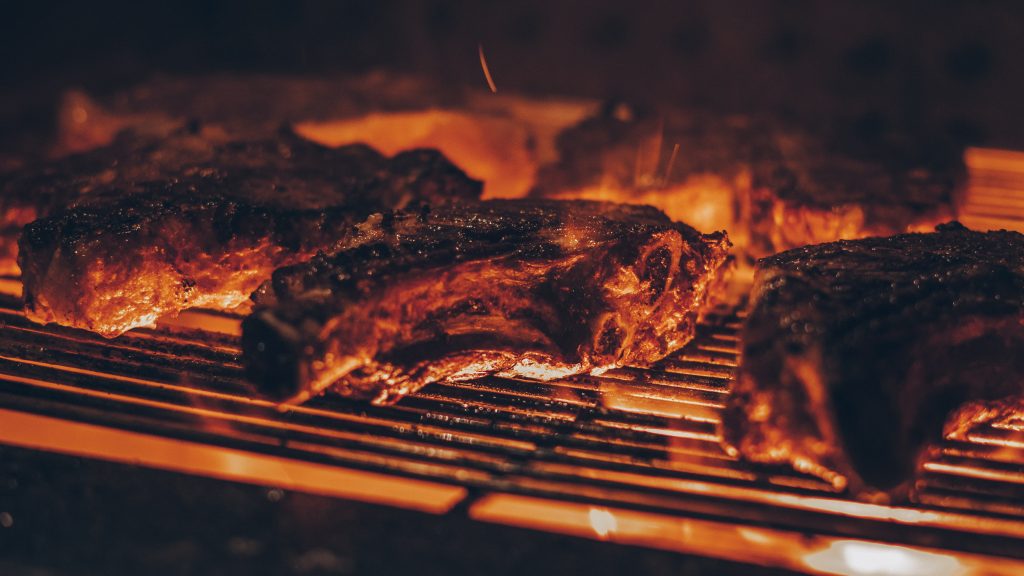
I had a neighbour once who loved barbecued food.
Barbecuing increases the heating effect in a food. Over a period of years his face became florid, and he got grumpier: signs of Heat.
He began to suffer conditions characterised by heat and dryness, such as arthritis and skin eruptions.
I always thought the kind of food he ate contributed to these problems, but he moved away before I could prevail on him to change his eating habits.

Stay in Touch!
No spam, only notifications about new articles and updates.

Book a Video consultation if you want to know more about your symptoms
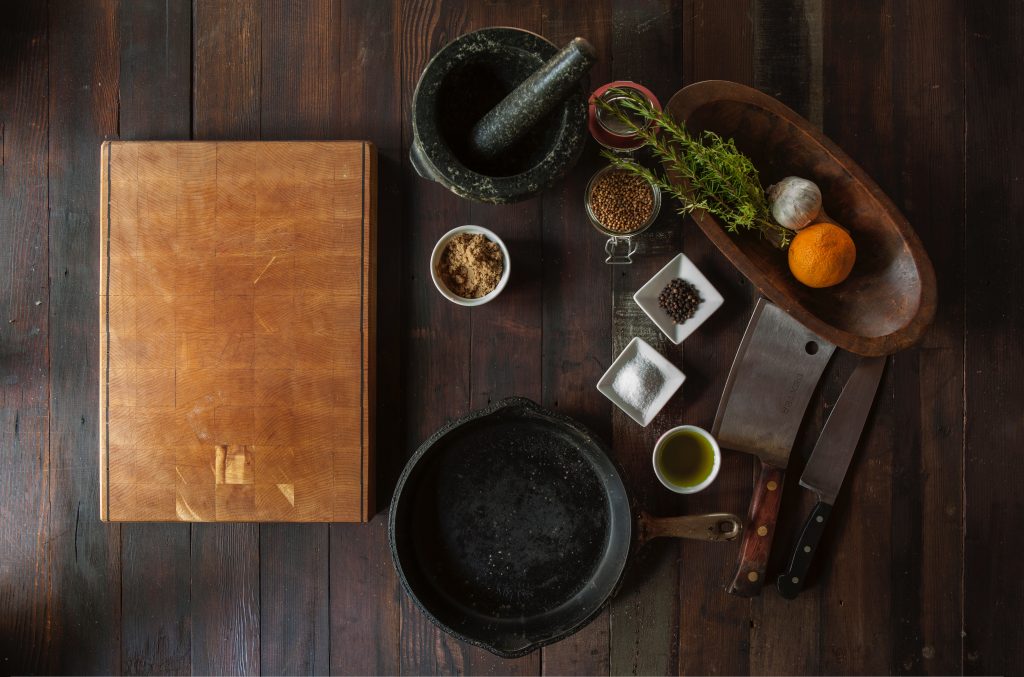
Foods and herbs have been carefully classified in China over the centuries as to their energetic qualities.
For example, whereas maltose (yi tang) is occasionally used to tonify the Spleen, because it is said to enter the Spleen meridian and to be slightly warm (it also soothes the digestion and moistens the lungs), cane sugar, the white stuff we like in our tea and on food, is damaging to the Spleen because it is cold in nature, like bananas.
Cane sugar and bananas come from hot latitudes, and though they contain carbohydrate and help Qi, they are cooling: they are potentially damaging for people living in cold climates if taken in excess. Maltose, made during malting, is used in drinks such as Horlicks: it is warming. (However, Horlicks also contains quantities of cane sugar.)
According to the New Scientist (9 November 2024 p14)
‘Sugar Rationing during and after the second wold war seems to have improved the health of people conceived in the UK at the itme,
cutting their risk of developing type 2 diabetes and high blood pressures decades later.
Tea, the Indian variety, is cooling: coffee is warming. Both contain caffeine, especially coffee, and too much of this can be damaging – see our page on Coffee for who should and who should not drink coffee!
The Indian subcontinent has made a fortune out of our British tea habit, which is comical because we have a cold climate and take tea to warm us up. Actually it makes us pee, cools us down, and ensures that we want another cup!
Not until ice cream was invented did we get our own back. Ice cream is full of fats, and although it initially cools you down, later on you warm up, ensuring you want more!
Unfortunately the Indians soon cottoned onto this and now offer sorbets as well as traditional ice-cream made from milk. Sorbets are made from cane sugar, juice and ice, so are cooling. For most Indian curry eaters, the cooling effect of a sorbet after a warming, spicy Indian curry is probably a better combination than a warming ice-cream made from milk-fats.
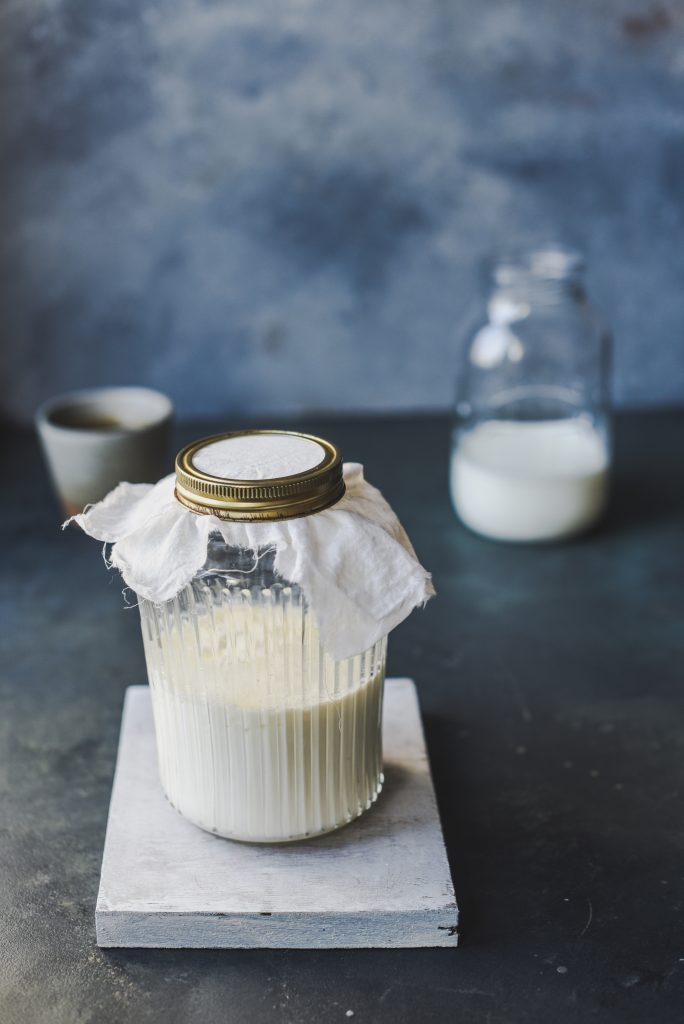
Another way Indian cookery balances the heating effects of their wonderful hot spicy dishes and curries is with yogurt-based drinks like Lassi. (Yogurt is cooling.)
You can see from this that the Chinese attitude to nutrition, diet and food is based on Chinese medicine, which makes it quite sophisticated.
Always to think about the effect of a food on your health is a waste of time: our bodies have evolved over half a million years and can cope with quite a bit of rubbish. Unless, of course…
In those cases, what you eat may make you ill or more ill. The more sensitive you are to the food you eat, the more quickly you’ll get sick.
For health, you also need healthy Stomach Qi. Eating the right foods, the right way, will over time increase the health of your Stomach. That’s important, wouldn’t you say, given that the food you eat starts there!?
If you want to become pregnant, what you eat will be vital for your ability to conceive. Then you’ll want to remain healthy throughout your pregnancy to give your baby its best chance for a successful birth and a healthy life.
Also, it pays to know a bit about the underlying theory behind Chinese medicine. It takes just a few minutes to grasp, and the rest of your life to understand.
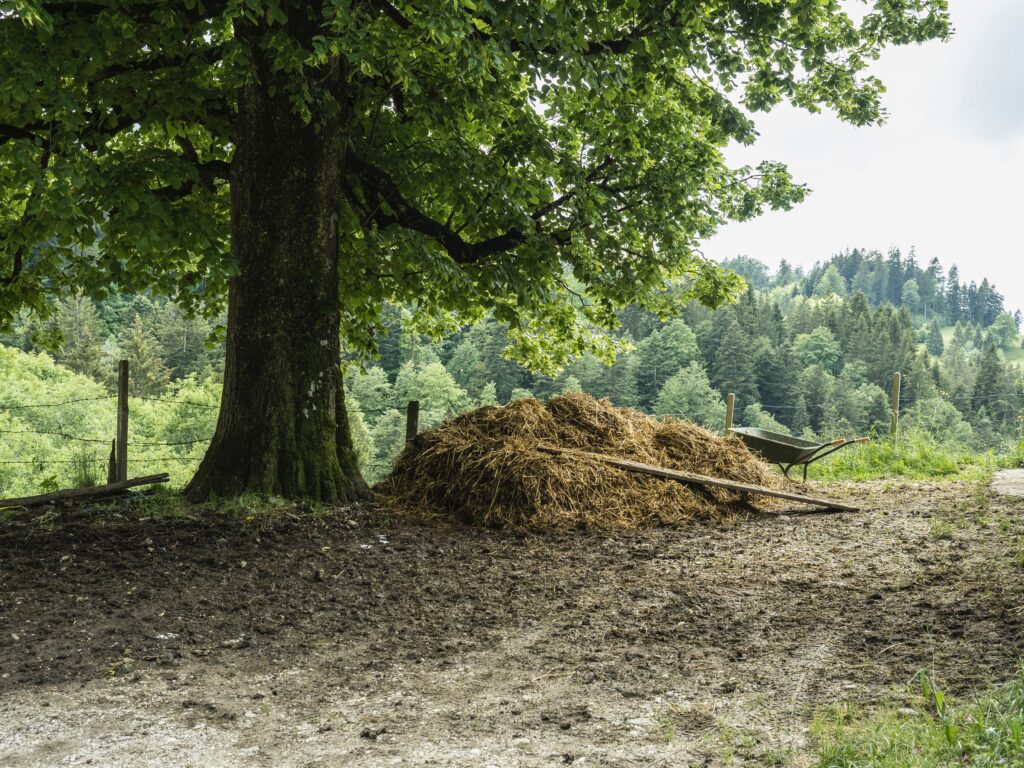
Many modern foods contain substantial quantities of chemicals. Also we refine and process them during manufacture. Often they lose their ‘wholeness’.
We need to re-assess these modern foods because traditional Chinese medical theory assumes they come from organic sources. Also that stable farming practices and traditional cooking methods produce them without refinement.
Nowadays we’ve begun to remove many of the nutritional qualities of food, often to make them keep longer (for instance in the case of white bread flour and many cooking oils).
So wholemeal bread (wheat, Spleen energy, a little cooling) has a different effect to refined, white bread.
How freshly harvested is your food?
Ideally, buy it when it has ripened naturally in the sun and rain. This gives the plant time to mature, including to extract all it needs from the roots and then refine it from natural light, warmth and wind. This produces the best combination of vitamins and minerals, and it tastes better too!
Compare that with commercial fruits which are harvested unripened, chilled and stored, and then treated with ethylene gas to induce quick ‘ripening’ after storage. Such food lacks many nutrients compared with naturally ripened food. (See article by Beronda L Montgomery, New Scientist 2 July 2022 p 28.)
It takes time to work out what a food does: sometimes years. But by and large, there are provisional classifications for most modern foods.
Additives include artificial:
and let’s not forget …
Apart from salt and spices, which the Chinese knew about, we don’t yet know what these very recent additions are doing to us. Although in many cases we have strong suspicions.
For instance we use Aspartame as a sweetener and flavouring in sodas, colas, sweets and snacks. People consume it in huge quantities.
Although the manufacturers funded many tests showing no dangers, other tests pointed to potential consequences of over-consumption.
The book Sweet Deception, Dr. Joseph Mercola & Dr. Kendra Degen Pearsall, 287 Page Hard Cover Book is easy to read and well researched. If you doubt me, do read it.
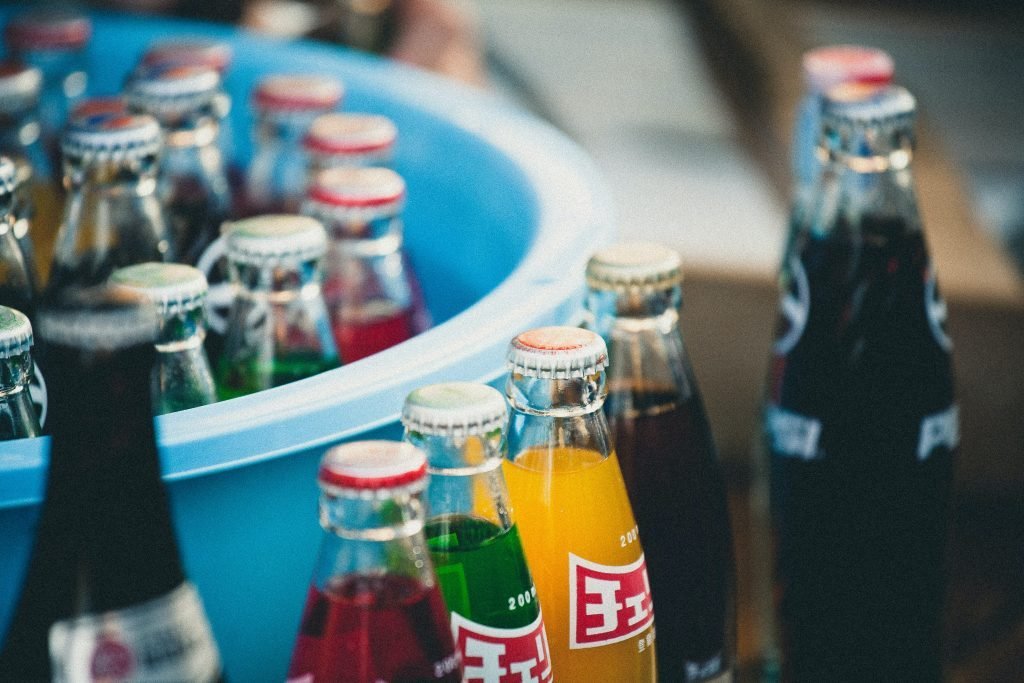
So you drink a half-litre of cola or soda several times a day? Many would say this was not excessive. Yet count the amount of aspartame drunk with it and you might reconsider your options.
Aspartame is in some ways as deadly and addictive as crack cocaine. It encourages your pancreas to release insulin when very little is needed, upsetting your blood levels and fooling your brain into wanting more.
This seems a curious question, but it’s also important because your body won’t absorb nutrients so easily if you eat what are classified as DRY foods. Read our page on WET FOODS.
Wet foods also increase your fluid intake and Chinese medicine thinks you’ll make better use of water taken this way.
The major classifications are as follows. They are applied to both foods and herbs, though the classifications are more important in herbalism than in the kitchen.
How well does a food strengthen or weaken:
Is the food:
Is a food:
Of course they’ve done the same thing with many modern Western medicines – see our page on antibiotics, for example. But that’s another story.
The upshot – if you are still with me – is that what you eat has not only a (Western) nutritional effect on you for better or worse.
What you eat also has an energetic effect on you from the Chinese medicine perspective.
In the long term, you need a diet of food and of nutrition that is healthy from both perspectives.
In the short term, you’ll find that the energetic perspective is often more important for balancing your energy quickly.
For example, suppose you are catching a cold and you feel chilled. In this case, probably the best foods are warming which, instinctively, you’ll probably want anyway.
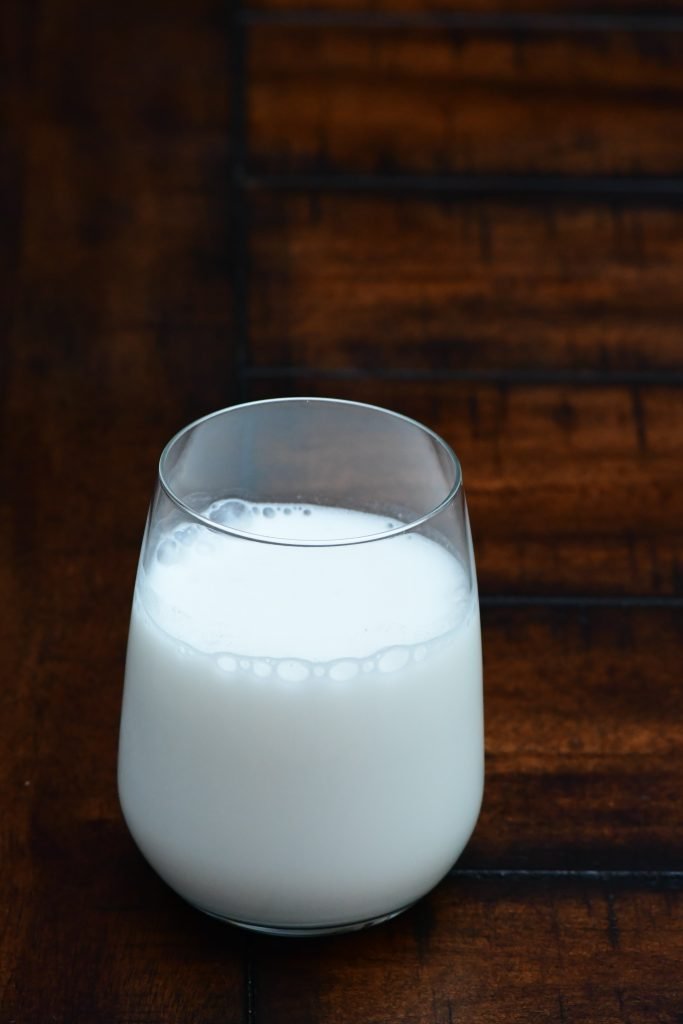
Because cold foods easily cause phlegm, avoid milk and milk-based foods like cheese, cream and yogurt and instead take ginger (warming) and lemon (astringent and drying). (Yogurt, which you may think good because of its active bio-cultures, is cooling – not conducive if your problem is Coldness!)
Conversely, if you feel hot and thirsty, take cooling moistening foods, like natural yogurt and milk (organic if possible, of course, to avoid even more exposure to antibiotics and pesticides, small though the amounts in any single glass of it may be).
Most acupuncturists can advise you on this and guide you towards the nutrition and diet that suits you best.
What about vitamins and minerals for good nutrition? Click here to find out about Supplements!
Many illness syndromes in Chinese medicine occur because of diet – the wrong diet. For example, here are just a few, though many of them have other causes too. But too much of one food or an imbalanced diet, can produce, for example:
Of course, many of these have similar causes in Western medicine but in the latter, it is purely the nutritional effect that is considered (unless your doctor believes medication can cure all diseases, of course) and not the energetic effect of food.
Food energies often work faster than their nutritional effects.
For example, what about a long-term runny nose (with clear or white phlegm, indicating a ‘Cold‘ energy) in a vegetarian? The vegetarian might decide to cure his condition with ever more organic food.
Considerable experience – often with vegetarians – shows it would resolve faster (sometimes overnight!) if the patient were to eat no cold or iced food/drinks and instead were always to take them cooked and warm or hot. (Yes, cooking does destroy some nutrients but even so the imporovement in absorption through better digestion easily makes up for this.)
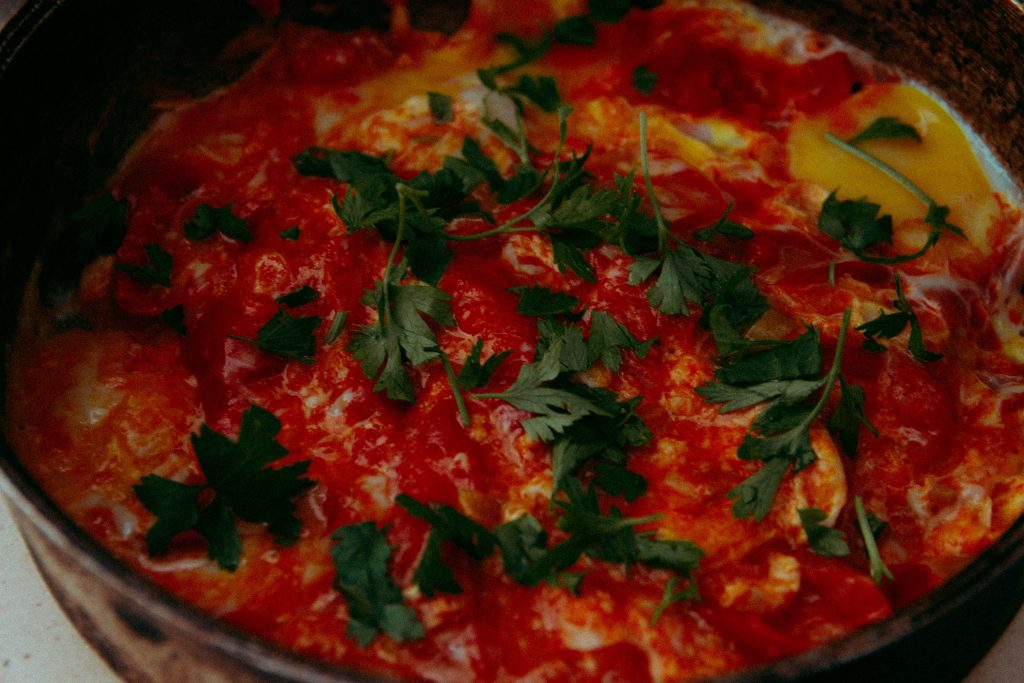
(Believe me – I’ve seen it happen lots of times!)
What about pizza, as pictured above? Well, yes I enjoy the occasional pizza but it’s made with refined flour (so the flour itself may be less nutritious than if they used wholemeal flour – but working with wholemeal flour is less easy), and it’s dry. That dryness is a problem because digesting it means our stomach must provide more moisture from its own resources. This can eventually lead to Stomach Yin deficiency. (Drinking lots of water as you eat the pizza is not the right solution, either, because it may weaken Stomach Yang.)
If you’re interested in recipes, I’ve put a few (but growing in number) on a page of dishes for Yin Deficiency.
Nutrition is a huge subject, even just in Chinese medicine and culture!
Some dishes you should try!
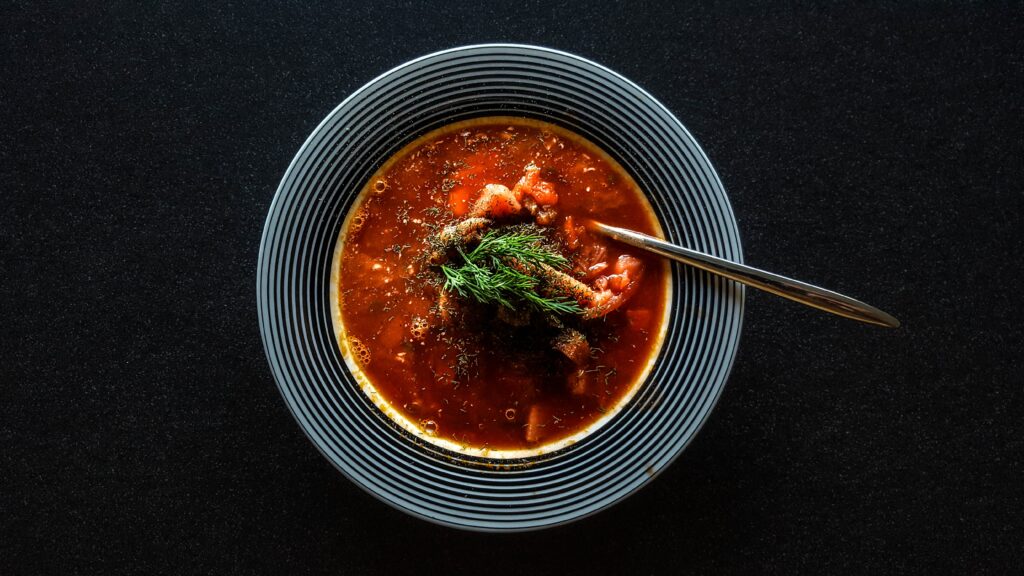
The two books by Andrew Sterman listed below give you a real feel for Chinese medicine and how it approaches food as a source of health and disease. I highly recommend them.
Each of the following books also has merits:
If you live locally, you could come to one of our 3 hour introductory sessions:
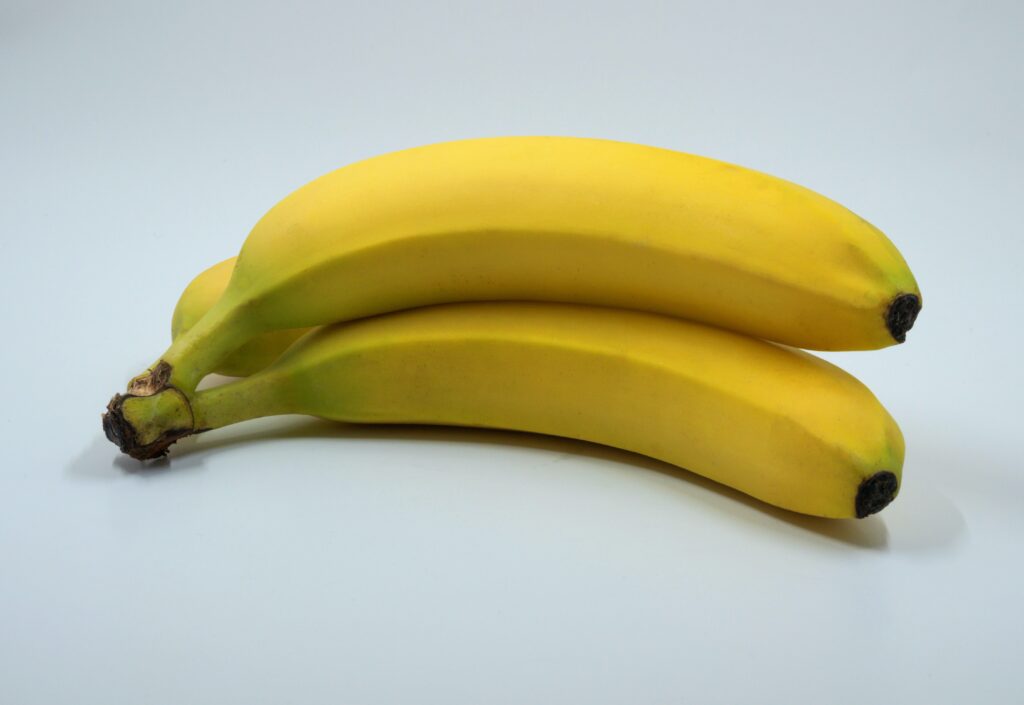
Bananas are a great food in a hot dry country which is – fortunately – where they grow!
From the perspective of Chinese medicine, they moisten your intestines, they are cooling, and they engender qi.
So, as you stagger out of the bush, dehydrated after your march, boiling hot, constipated and exhausted, what could be better than a food, like a banana, thae re-hydrates you, moistens your intestines, cools you down and gives you some energy?!
But if you live in cold, damp country, like Britain, bananas are not a good choice in your daily diet. (Of course, if you are suffering from a hot, drying disease-syndrome, bananas might be just great for you, at the time!)
See Cold Foods for more on this. If your digestion is in poor shape (eg Stomach Cold and Deficient), it may not extract all the nutritives from the fruit that it contains – in fact the bananas may go straight through you, a nice experience as they go in, but not so good as they come out. A waste of your good money and leaving you slightly more deficient than when you started.
Rule No 1 in nutrition is to preserve the patency of your Stomach energy. Many chronic illnesses lead to Stomach deficiency, and take longer to convalesce from unless your doctor or therapist also addresses your Stomach energy.
From the perspective of Chinese medicine, wheat is warming and strengthening. (Check modern scientific research for Wheat’s nutritional values here – they are about half-way down that page on the right.)
So far so good, for wheat nutrition!
However, taking that a bit further and you may understand why, eaten as it often is nowadays, wheat is
This can make it a sticky food, tending to hold things in place.
That happens because, unless we compensate with moistening cooling foods, it will produce symptoms of heat so may constipate us or at least retard progress of the food through our digestion.
Many sensitive reactions to wheat occur because of this! Wholemeal flour contains more fibre, which assists the peristaltic movement of your bowels, so tends to be more clearing in action.
And we do eat a LOT of wheat!
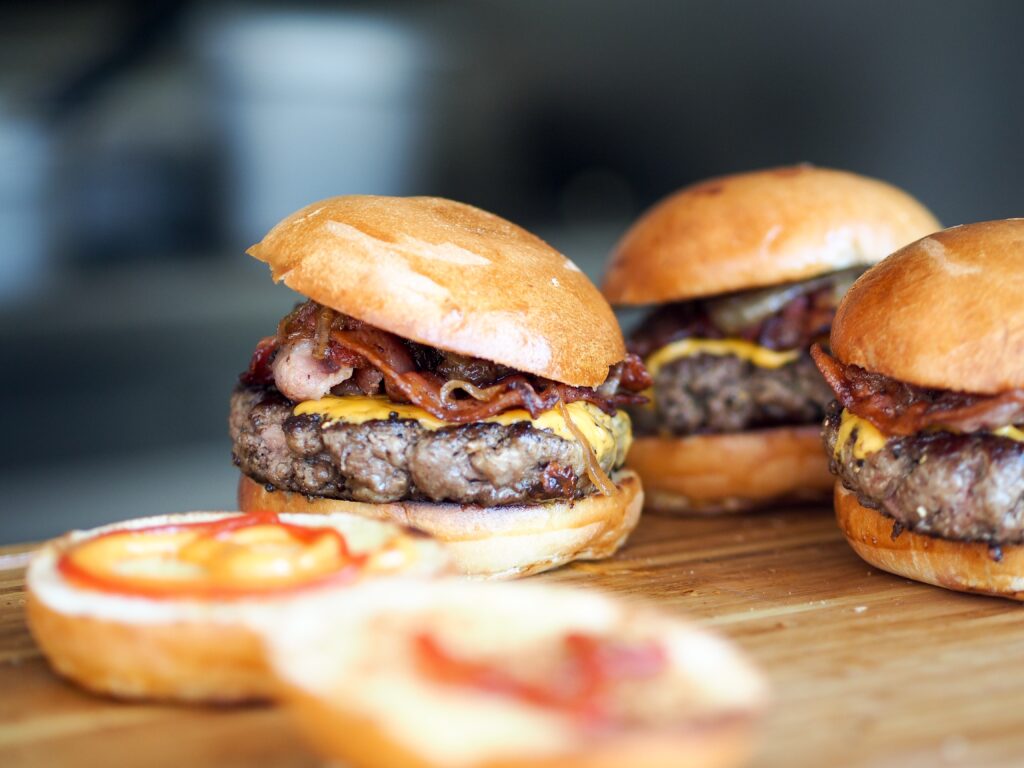
Think of all those meat burgers, fried and barbecued, we place between two halves of a (wheat) bun! The meat is also heating, but we often forget the heating effect of the wheat.
Kneading the wheat flour also creates more gluten, which increases the food’s stickiness, binding up our insides even more.
Those sensitivities to wheat are probably worsened because the farmers used pesticides, fungicides, herbicides and non-organic fertilisers.
Buy organic if you can! And experiment with older varieties (einkorn, khorasan, emmer, farro etc.) that with luck, farmers will have meddled with less.
Modern, Western, medicine and nutritional science has recently woken up to the merits of your microbiome – the importance of the contents of your gut for health.
In Chinese medicine, your Stomach and Spleen energies correlate a lot with this idea of your microbiome. Your Stomach energy is in many ways, your most important energy, so what you eat is regarded as having a MAJOR effect on your health and life.
Modern nutritional science accepts that your microbiome affects the way your brain works and how immune you are to disease. Foods and supplements that benefit your microbiome make you healthier and likely to enjoy longer life – and vice versa. However, research shows that supplements, which often contain concentrated amounts of vitamins, minerals and probiotics are less effective for your microbiome’s health than the foods that it likes.
It likes whole foods, in balance, with plenty of natural fibre; a wide range of foods, including fruit, vegetables, the right oils, protein and carbohydrate. It very much likes fermented foods.
Research by Justin Sonnenberg at Stanford University in California showed, among other things, ‘that the immune response of the participants on a high-fibre diet varied according to the initial diversity of their gut microbes’ (New Scientist 5 Nov 2022 p49). That means that if you want to affect someone’s microbiome, you need a personalised approach.
That’s what Chinese medicine has been saying for 3000 years. There’s no perfect diet for everyone.
On the other hand, if you want an approximation to the ‘perfect diet’, start with the Mediterranean diet and then adapt it to your circumstances.
First remember that, by definition, the Mediterranean diet relates to countries round the Mediterranean Sea which is warmer than the climates of many other countries. It’s certainly warmer than that of Scotland – where I live – which is why I like holidays in southern Spain.
So, if I were recommending the Mediterranean diet to someone living in Scotland, I would suggest that they use more cooked vegetables, eaten warm, and less salads. Salads tend to be cooling, cooked vegetables more warming. Chinese medicine would go much further than this, however, and might make suggestions for particular foods.
Also, bear in mind that the Mediterranean diet contains no processed foods, no burgers, no colas, very little sugar and no sweeteners. It starts with foods that are in a raw state close to that when harvested.
Also, it contains many herbs, but fewer spices. Some people have taught their digestions to tolerate, even expect, strongly heating foods and spices. Spices are usually heating and sometimes moving, though also drying so suddenly reducing the spices in your diet may mean changes in your breathing, bowel actions and skin, for example.
What that means is that everyone should move towards their new diets incrementally. My mentor, Dr Ac Mary Austin, encouraged people with poor diets to make one change in the right direction per week, rather than all at once. She recognised that it was unrealistic to expect someone to completely change their eating habits in one go, overnight.
The Will to Change is inversely proportional to the quantity of drugs taken – including alcohol.

Why You get Nervous Stomach Anxiety and How to Handle It. Acupuncture has great ways to help.
Subscribe to the Newsletter
If you are interested in understanding how Traditional Chinese Medicine can improve your life sign up to my newsletter for the latest updates.
Subscribe to the Newsletter
If you are interested in understanding how Traditional Chinese Medicine can improve your life sign up to my newsletter for the latest updates.
2 Responses
Hi,
After reading many of your posts I’ve self-diagnosed myself as having heart fire hyperactivity with a mix of kidney yin and yang deficiencies. To an extent you’ve mentioned there being an appropriate order of resolving issues (maybe dependent on pathologies), but I wanted your opinion on how I should reverse these conditions and regain balance. More specifically, which posts/books do you recommend and in what order.
Thank you,
Hi James, I’ve replied to you privately. Best wishes Jonathan